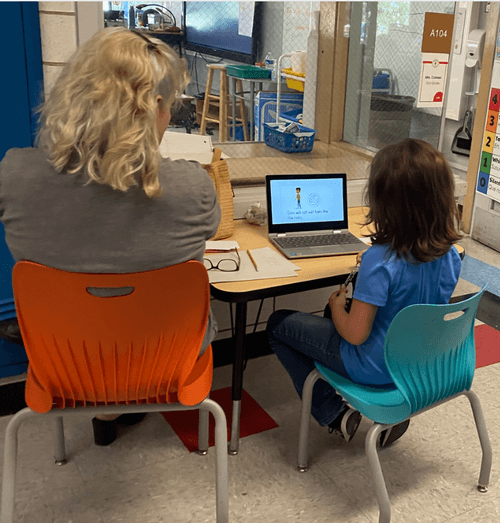
Our Impact
Transforming Children's Futures
"I have seen a tremendous positive impact on my daughter’s reading. She is not only reading now but picks up books on her own and enjoys reading them. Her overall school experience has improved."
- Nikki, Parent, Animbiigoo Zaagi'igan Anishinaabek
Chapter One’s high impact tutoring program has been demonstrated in large-scale randomized control studies to substantially increase student beginning reading proficiency.
Our online reading volunteers build on these skills by inspiring students to read more fluently and with engagement and comprehension.
7 out of 10 students who received high impact tutoring achieved phonics benchmarks compared to 32% in a control group.
In 2023-24, more than 2,300 children in 8 provinces and territories across Canada improved their reading with Chapter One.
Number of 1:1 volunteer reading sessions in Canada since 2018.
Key Evidence
During the 2021-22 school year, Chapter One launched, in cooperation with Stanford University’s National Student Support Accelerator (NSSA), one of the largest randomized controlled trials of high impact tutoring for beginning reading instruction.
Nearly 800 kindergarten students in Broward County, Florida were randomly assigned at the beginning of the school year. The treatment group received 1:1 supplemental high impact tutoring in phonics from Chapter One. All 1:1 sessions were conducted during the school day in short bursts to maximize student focus at this age, and minimize classroom disruption. Students also received 20 minutes per day of independent practice time on tablets synched to the instruction conducted that day.
Researchers from the Accelerator analyzed the data of assessments conducted at the beginning and end of the school year. Key findings showed that students receiving one-on-one high impact tutoring with Chapter One were more than twice as likely to achieve grade-level reading targets compared to their peers:
36% more students in the control group achieved grade level phonics skills by the end of kindergarten than students in the control group, a difference that is both large and highly statistically significant (p<0.01).
The Year One results from this ongoing four-year study have been published in the peer-reviewed journal Learning and Instruction.
Related Content







